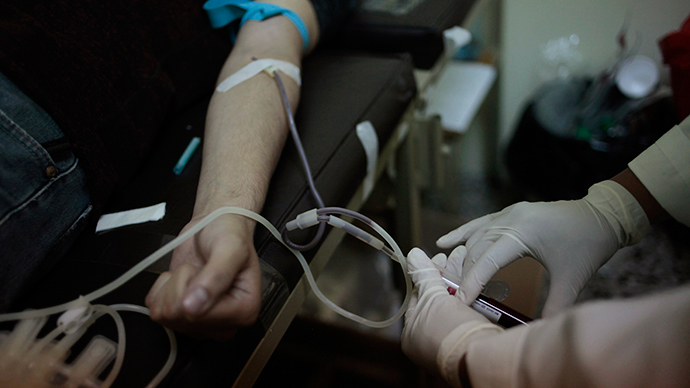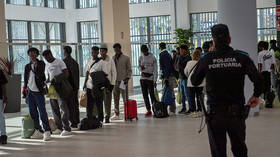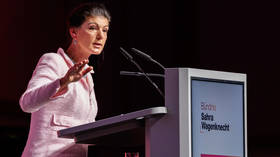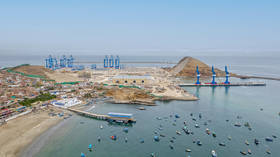French national ethics body rules to keep indefinite ban on gay blood donation

France is to retain a ban on homosexuals donating blood as the national ethics committee called for more health risks’ research. The idea to revise the restriction appeared as part of Health Minister Marisol Touraine's new medical reforms.
Parliament started debating the new healthcare system draft law on Tuesday. The gay donors ban was among the 2,400 amendments in the disputed reform package.
France's National Consultative Ethics Committee (CCNE) believes maintaining a ban is not a matter of gay rights, but a health issue as there are still “scientific uncertainties” on the risks of using blood from homosexuals.
“Giving blood is not a right. What matters most is the health and the protection of the receiver,” said Jean-Claude Ameisen, president of the CCNE.
The committee says that lifting it now “could expose people to medical risks, which should be taken into consideration from an ethical point of view."
The ban on French gay or bisexual men donating blood or tissue for organ transplants comes from a 1983 law. It was based on statistics that showed a prevalence of HIV among homosexuals, and that the virus isn’t always registered if blood tests take place soon after transmission. The ban covers people who habitually practice same sex relations, and those who confessed to even a singular gay contact during preliminary interviews for potential donors.
CCNE President Prof Jean-Claude Ameisen told Le Monde that the committee is a health agency and should not be involved in a “societal” debate.
But the agency also said the latest statistics showed one contamination for every 2.5 million blood donations and the last case was 13 years ago.
In 2012, Health Minister Marisol Touraine said she wanted to revise the ban, but later changed her opinion saying there was nothing she could do without an “absolute guarantee” that it would not increase risks for recipients.
READ MORE: FDA ready to relax ban on gay blood donors
Touraine said the preliminary interview process with potential donors should be changed as sexual orientation is an“unacceptable” exclusion criterion. But she left it to experts to decide if the law should be changed.
The French LGBT community, which got the right to register same sex marriages two year ago, reacted furiously to the committee's decision.
President of the LGBT Federation, Stephanie Nicot, called it absurd.
“It's risky behavior that should lead to exclusion, and only a temporary one, not the fact that you are gay or you had a homosexual relationship 20 years ago. This is an extremely worrying sign," he said, as cited by the Local.
Ludovic Saulnier, a doctor and member of gay rights group SOS Homophobie told the Local that people still have a 1980s stereotypical image of all gay men having AIDS: “People simply thought AIDS was a gay man’s disease and we are stuck with that view today. Most gay couples are like any other heterosexual couples in terms of their sexual practices.”
Around the globe, the situation with gay donors varies. In some countries, such as Spain, Portugal and Russia, there are no limits on people practicing same sex relations to donate blood or organs. However, in Finland, Brazil, Australia and UK donors must undergo a one-year abstention from gay sex. In Canada, the limit is 5 years.
In July, European Court of Justice’s Advocate General Paolo Mengozzi condemned France’s ban as illegal because it discriminated against people according to their gender and sexual orientation.











